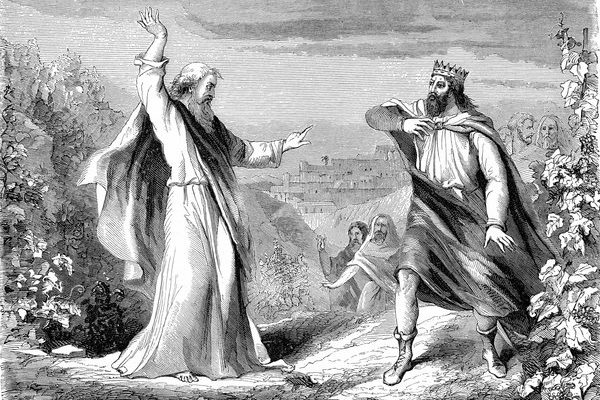Today, as I was studying today’s Bible lesson from 2 Kings, a powerful story about King Jehu unfolded before me. It reminded me of the grim account of wicked King Ahab, his infamous wife Jezebel, and the prophetic judgment delivered by the Prophet Elijah. Reflecting on these events, I was struck by how Ahab’s wickedness not only had a detrimental impact on his own generation but also proved to be deadly. His 70 sons were killed by Jehu, taking out his entire family bloodline.
Jehu was anointed as king of Israel by the prophet, Elisha and played a crucial role in executing God’s judgment against the house of Ahab, the wicked king of Israel.
Here are some key points about Jehu and his actions:
1. Rise to Power: Jehu was a commander in the Israelite army during the reign of King Joram (also known as Jehoram) of Israel. Elisha sent a prophet to anoint Jehu as the next king and instructed him to carry out God’s judgment on the house of Ahab.
2. Destruction of the House of Ahab: Jehu’s primary mission was to eradicate the entire lineage of Ahab, including King Joram, Queen Jezebel, and the other members of the royal family. He executed this task with great zeal and brutality.
3. Elimination of Baal Worship: One of Jehu’s notable actions was his zealous campaign against the worship of the pagan god Baal. He orchestrated a devious plan to gather all the prophets and followers of Baal in a temple and slaughtered them all, effectively destroying Baal’s influence in Israel.
4. Partial Obedience and Consequences: While Jehu initially followed God’s command to eliminate the house of Ahab, he did not completely turn away from the sins of the previous kings of Israel. He allowed the worship of the golden calves to continue, and as a result, later kings of Israel continued in idolatry and disobedience.
5. Length of Reign: Jehu ruled over the northern kingdom of Israel for approximately 28 years, from around 841 to 814 BCE.
Jehu’s reign had a significant impact on the history of Israel. Despite his initial obedience in executing God’s judgment on the house of Ahab, his subsequent actions and failure to fully follow God’s commands ultimately led to the continued spiritual decline and eventual downfall of the northern kingdom of Israel.
Elijah’s Prophetic Judgment on Ahab’s Generation
Elijah prophesied judgment upon Ahab’s descendants. The specific prophecy can be found in 1 Kings 21:20-24. Here are the details of Elijah’s prophecy:
6. Context: Ahab, the king of Israel, desired to acquire a vineyard belonging to a man named Naboth. Ahab offered to buy the vineyard, but Naboth refused to sell it because it was an inheritance from his ancestors and was not to be sold. Jezebel, Ahab’s wife, devised a plan to have Naboth falsely accused and executed so that Ahab could possess the vineyard.
7. Elijah’s Prophecy: When Elijah confronted Ahab about his wicked actions, he pronounced God’s judgment upon him and his family. Elijah declared that dogs would lick up Ahab’s blood in the same place where Naboth was unjustly killed (1 Kings 21:19). Furthermore, Elijah prophesied that the Lord would bring disaster upon Ahab’s descendants, eradicating every male member of his family, whether free or slave, and causing his household to suffer a fate similar to that of the households of Jeroboam and Baasha (1 Kings 21:21-24).
8. Fulfillment of the Prophecy: Elijah’s prophecy was fulfilled during the reign of Ahab’s son, Jehu. Jehu was anointed by a prophet named Elisha as the king of Israel and carried out God’s judgment upon the house of Ahab. He killed Ahab’s son Joram, Jezebel, and all the remaining sons of Ahab, effectively wiping out Ahab’s lineage (2 Kings 9-10).
Elijah’s prophecy against Ahab’s descendants reflected God’s judgment upon the wickedness and idolatry that characterized the reign of Ahab and his family. It demonstrated the consequences that awaited those who turned away from God and engaged in oppressive and sinful actions.
Let’s remember the profound impact our actions can have on future generations, whether they are positive or negative. The seeds we sow today will bear fruit and shape the world for those who come after us. So, let’s make a conscious decision to serve, obey and do what is right and acceptable in the sight of our Lord and Savior, Y’shua (Jesus).
